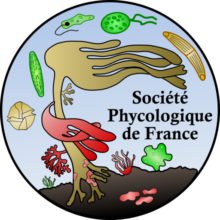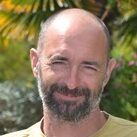
President
Matthieu Garnier is a marine microbiologist, researcher at IFREMER. His research on phytoplankton focuses on the molecular mechanisms of acclimation and on the metabolic interactions between microalgae and bacterial communities. He currently leads the microalgae genomics team (GENALG) of the PHYTOX unit (Nantes), a unit dedicated to the study of toxic species.
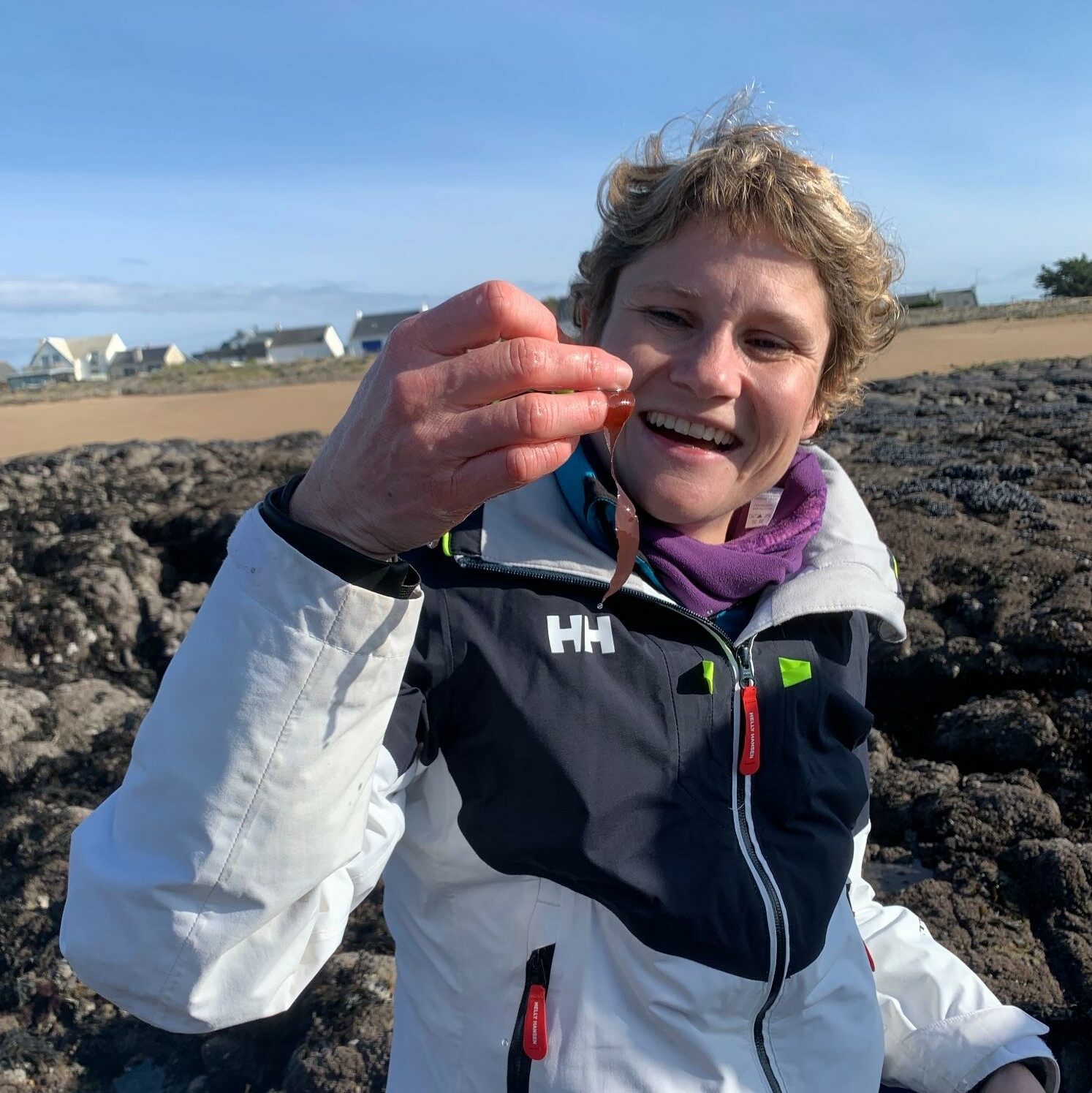
Vice President
Justine Dumay is a Professor of Marine Biotechnology and Algae Valorization in the ISOMer laboratory, which she co-directs. ISOMer’s mission is to OBSERVE, CULTIVATE, UNDERSTAND and VALUE coastal and estuarine areas. Justine Dumay is part of the new EVAD team (Ecophysiology and Valorisation for Sustainable Aquaculture) which focuses on the theme of valorisation, both of whole organisms and molecules, in the marine environment in a context of developing production channels. Justine Dumay and her team are specialized in the valorization of water-soluble algal metabolites, focusing on R-Phycoerythrin (purple protein pigment mainly from red macroalgae, such as Palmaria palmata, Grateloupia turuturu or Gracilaria sp.) and mareninne (blue polyphenolic pigment from marine diatoms of the genus Haslea). The use of enzymatic techniques to extract these compounds, coupled with soft separative techniques (ultrafiltration) and chromatographic techniques to ensure their purification allow the laboratory to increase the fundamental knowledge of these classes of molecules. Thanks to the restructuring of the laboratory, the algal culture and food algae component has taken off within the laboratory.
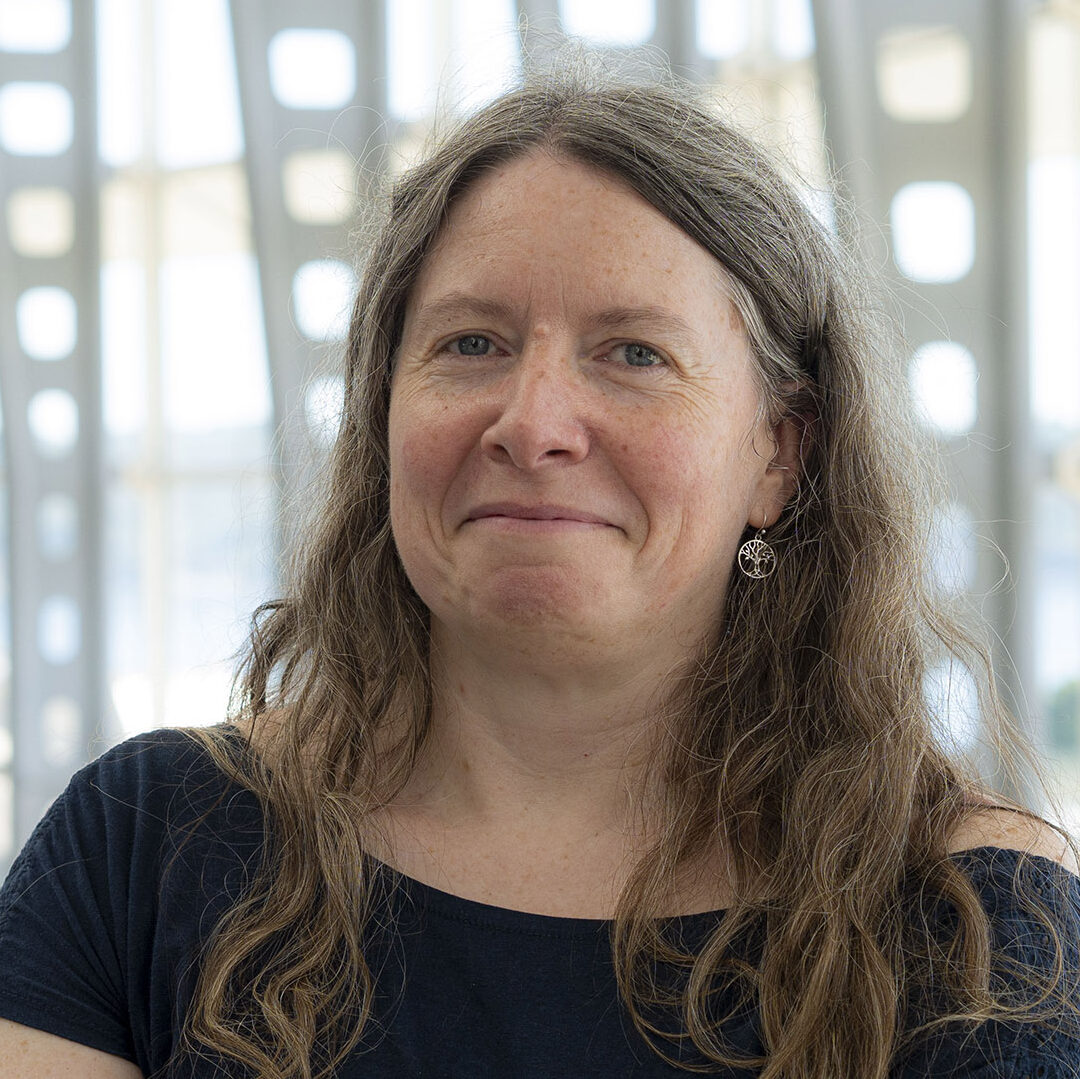
Treasurer
Solène Connan is a lecturer at the Université de Bretagne Occidentale in Brest. She carries out her research at the European Institute for Marine Studies (IUEM) in Plouzané within the PANORAMA team (Integrative Physiology and Adaptation of Marine Organisms: from the gene to the population) of the Marine Environment Sciences Laboratory (LEMAR; UBO/CNRS/Ifremer/IRD). She studies the ecophysiology of algae and is more specifically interested in certain algal molecules such as pigments, phenolic compounds and mycosporin-like amino acids, from their detection/identification in algae to their valorisation.
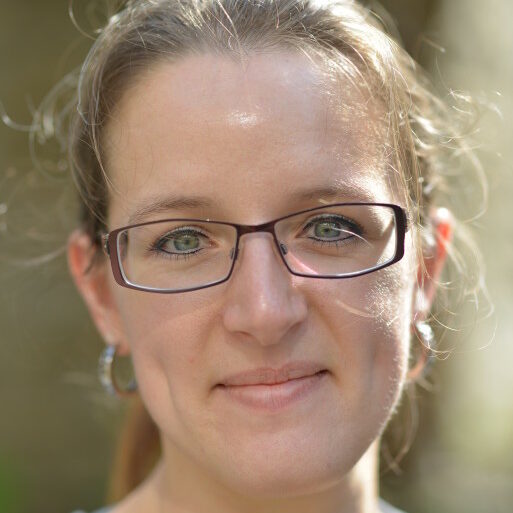
Vice Treasurer
Angélique Gobet is a researcher in microbial ecology applied to sustainable aquaculture at IFREMER and in the UMR MARine Biodiversity, Exploitation and Conservation research (MARBEC) in Sète and Palavas-les-flots, France. She is specialized in microbial ecology with extensive experience in microbial community ecology, genomics and bioinformatics. Her research focuses on understanding the ecological patterns of microbial communities, both free-living and host-associated such as algae, by studying their diversity and assembly processes, their interactions with the environment and their adaptation to specific ecological niches. Her research focuses on (i) characterization and determination of the role of microalgal polycultures in the bioremediation of aquaculture effluents as in Integrated Multi-Trophic Aquaculture (IMTA), (ii) monitoring of microbial communities in coastal environments affected by aquaculture (she is the referent scientist for the Thau lagoon for the ROME network at IFREMER), (iii) monitoring of microbial communities associated with algal cultures in industry (e.g. ANR Photobiofilm explorer), (iv) monitoring of microbial communities associated with aquaculture (eg. ANR Photobiofilm explorer, HOLOGREEN project). She has worked and maintains collaborations with marine aquaculture farms and biotechnology companies in France (e.g. France Haliotis, CEVA, GREENSEA, Coldep, INALVE, ERANOVA).
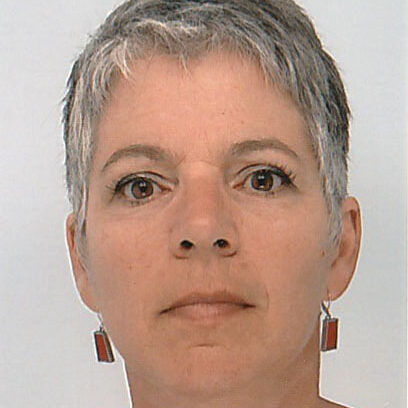
Secretary
Catherine Leblanc is a research director at the CNRS and head of the team “Biology of algae and interactions with the environment” in the laboratory of integrative biology of marine models (UMR 8227) at the Station Biologique de Roscoff. In the context of the evolution of eukaryotes, her research aims to better understand the molecular and biochemical processes implemented by algae to respond to biotic aggressions. She is particularly interested in the origin and evolution of certain defense and signaling mechanisms in marine algae and the role of the associated microbiota. One of her research axes concerns a very original defense metabolism of large brown algae, the halogenated metabolism.

Nathalie Bourgougnon
Vice Secretary
Prof. Nathalie Bourgougnon has been working at the Laboratoire de Biotechnologie et Chimie Marines (LBCM) of the Université Bretagne Sud since 2001. The main theme of her research is the search for defense molecules from macroalgae. She has a good experience in the field of extraction by eco-responsible processes, purification, characterization and evaluation of biological activities of molecules (antifouling or antiviral activities). Recently, she coordinated the ECOS North Mexico project (2015-2018) and PHC NUSANTARA Indonesia (2019-2021).
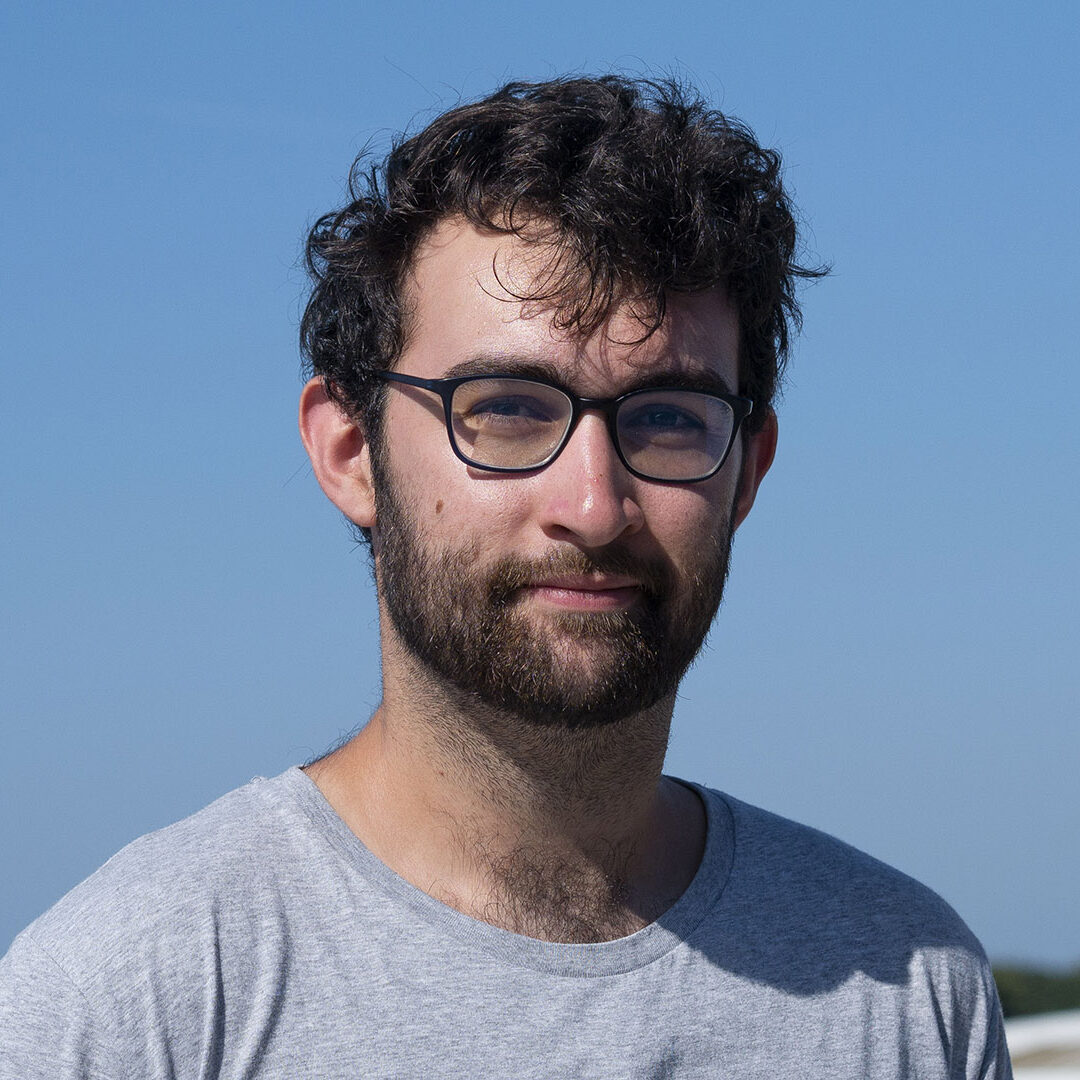
Thomas Burel is a lecturer at the University of Western Brittany. He carries out his research at the LEMAR (UMR 6539) within the European Institute for Marine Studies (IUEM). His current research focuses on (1) the functioning of coastal ecosystems dominated by large algae, particularly long-term changes, (2) the monitoring of non-indigenous species along the Channel-Atlantic coast and (3) the diversity of macroalgae through morpho-anatomical identification.
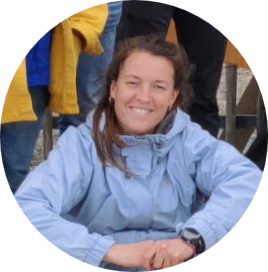
Anne-Sophie Burlot is a lecturer at the University of Southern Brittany in Vannes, carrying out her research at the Laboratory of Marine Biotechnology and Chemistry (LBCM). Her work focuses on 3 areas. The first focuses on the characterisation of molecular interactions within holobionts made up of macroalgae and their associated microbiota, in a given habitat. The second area of research involves developing defence and mediation molecules for a variety of applications using eco-responsible extraction and purification processes. The biological antioxidant, antimicrobial, antibiofilm, antifouling and photoprotective activities of extracts and molecules from holobionts are evaluated. Finally, she is interested in the ecological restoration of the marine environment by studying the interactions between the endemic species of a habitat and non-indigenous species.
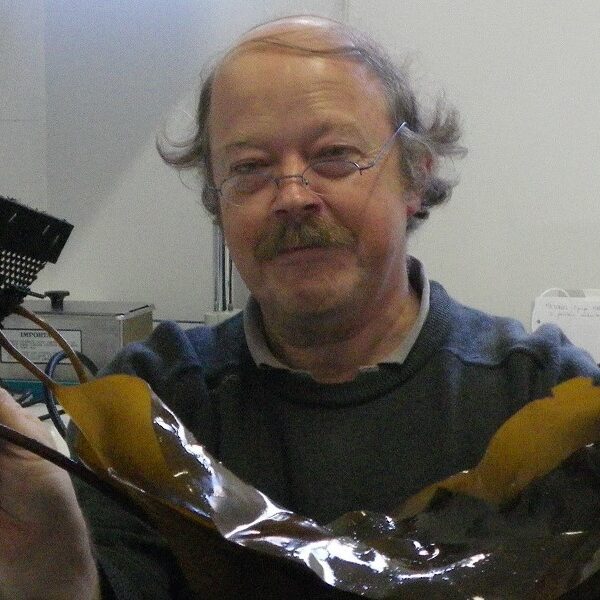
Christophe Destombe is a professor at Sorbonne University. He conducts his research at the Station Biologique de Roscoff within the CNRS International Research Laboratory (IRL 3614) Franco-Chilien “Evolutionary Biology and Ecology of Algae”. This research unit aims to study the dynamics, genetics and evolution of marine algae in relation to resource management and aquaculture in Europe and Chile. Its research theme is focused on evolutionary biology and reproductive ecology in different species of macro and microalgae. His objective is to understand the evolutionary processes at the origin of intra- and interspecific biodiversity within these groups. In this context, he is particularly interested in the diversity of sexual reproduction cycles in natural populations. These approaches in evolutionary biology have naturally led him to address evolutionary issues related to speciation and adaptation in marine algae.
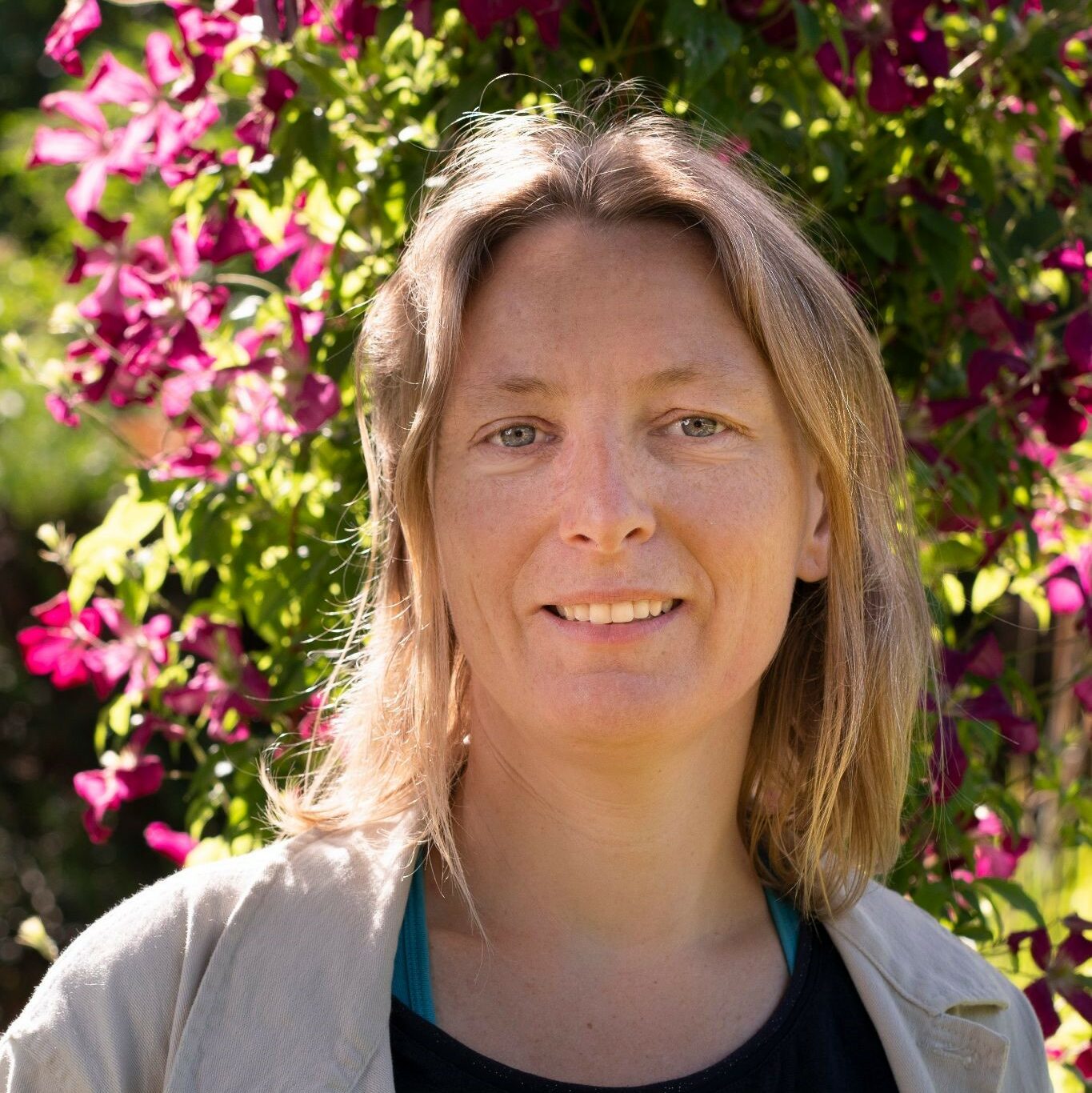
Line Le Gall is a Professor at the Muséum national d’Histoire naturelle. She conducts her research in the Exploration, Species, Evolution team of the Institut de Systématique, Evolution, Biodiversité. She is a specialist in algae and studies their diversity, evolution and systematics by combining morphological observations and analysis of portions of their DNA. She participates in major expeditions to explore the diversity of algae throughout the world’s seas in order to better understand their evolutionary history as well as the dynamics of their biodiversity at different time and space scales. She is particularly interested in the impact of global change on algal communities. She is in charge of the delegation for scientific explorations and leads and coordinates large expeditions, in which she is generally responsible for the coordination of the diving teams.
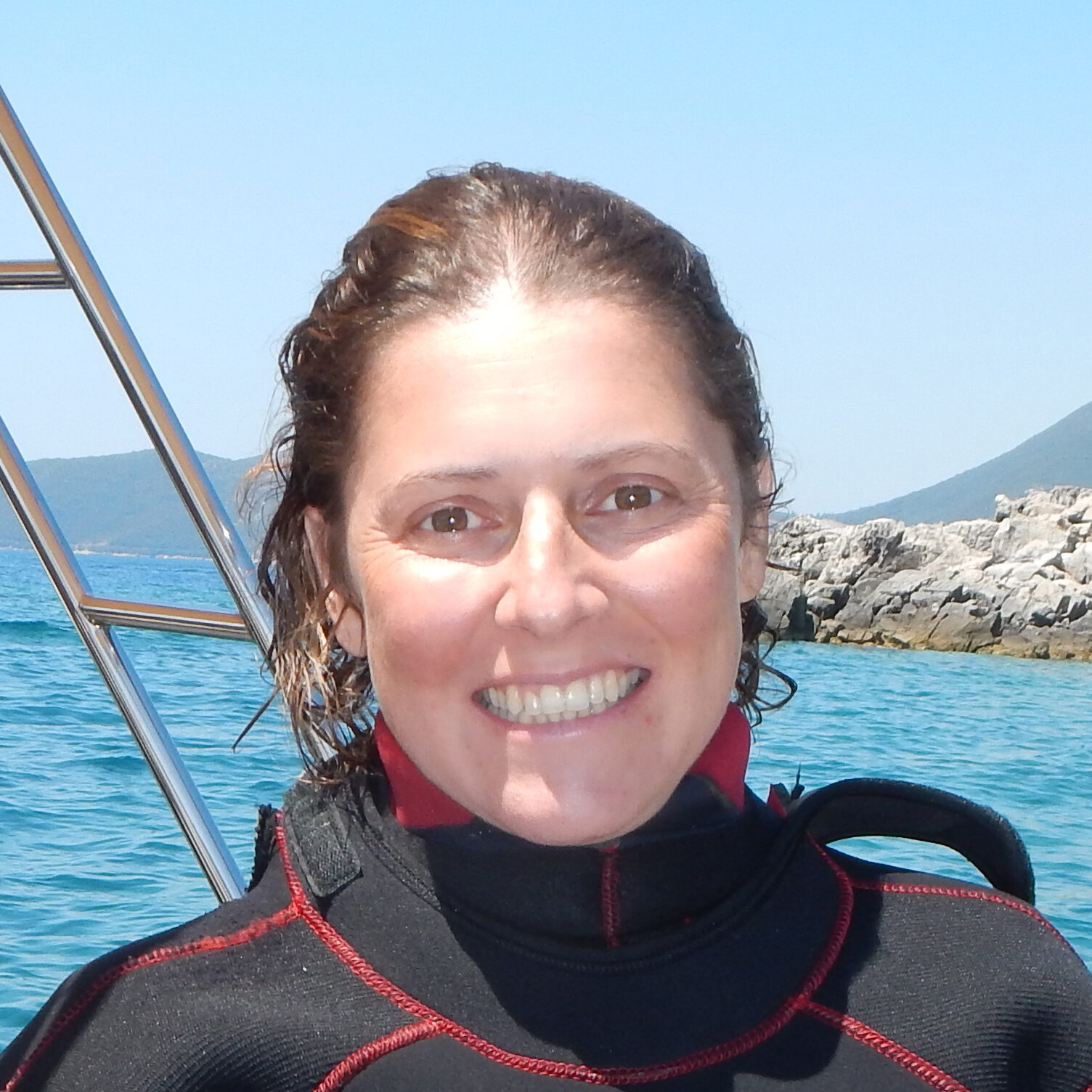
Luisa Mangialajo is Professor in Ecology at the ECOSEAS Laboratory, University of Côte d’Azur and Deputy Director of the MARRES Federative Research Institute. She is the author of more than 50 indexed papers on the benthic ecology of Mediterranean rocky coastal ecosystems. Her current research focuses on i) the ecology of marine forests of large brown algae (Cystoseira sensu lato) in the context of global change, their conservation and restoration (@niceseaforests) and ii) benthic dinoflagellate blooms (Ostreopsis).
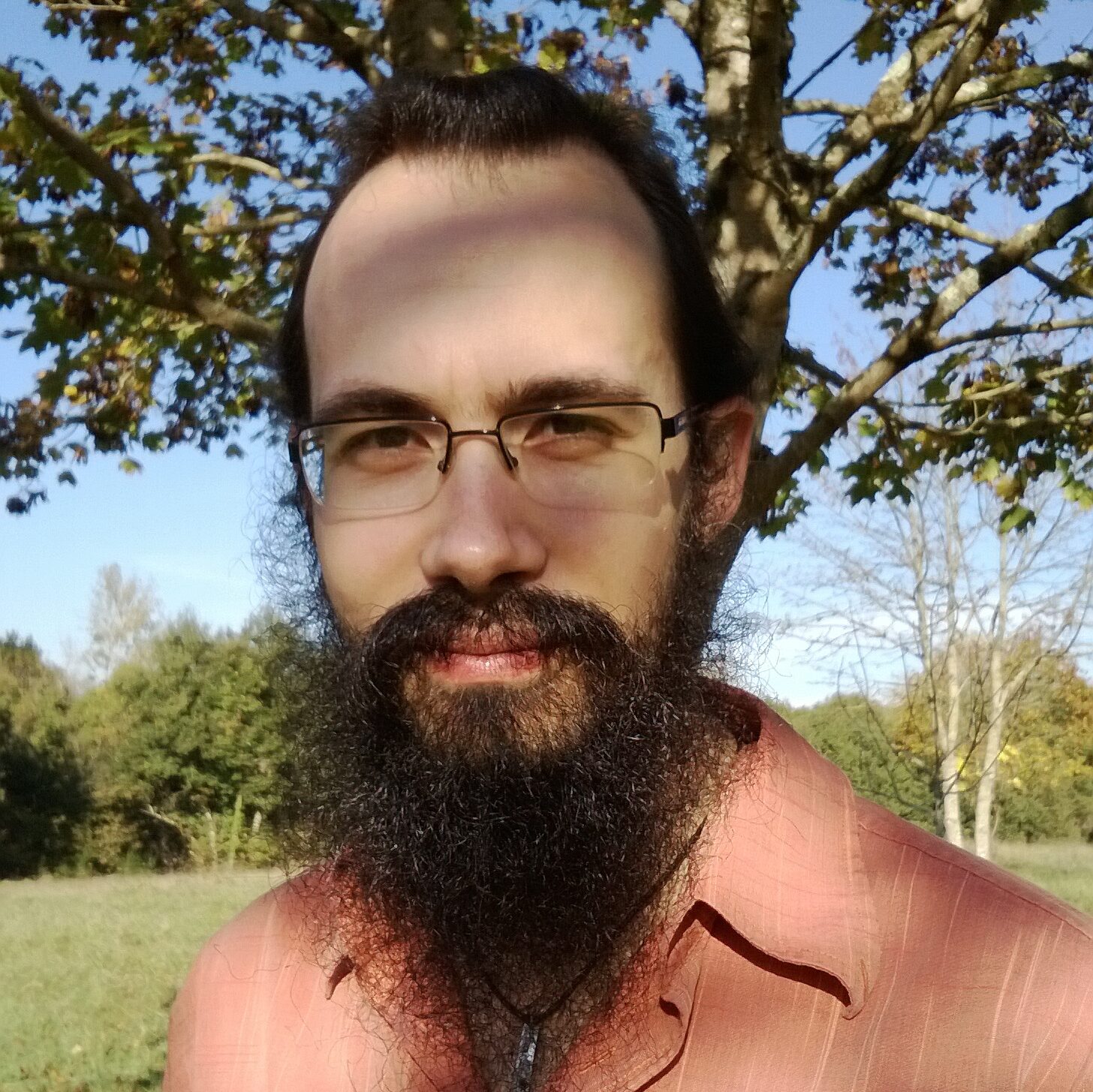
Gabriel Markov is a CNRS researcher and a member of the “Biology of algae and interactions with the environment” team in the Laboratory of Integrative Biology of Marine Models (UMR 8227) at the Roscoff Biological Station. His work focuses on the evolution of metabolism and signalling in brown algae, particularly in the context of an interaction between kelp and endophytic ectocarpales.
Former board members
- Eric Deslandes LEMAR – IUEM – UBO
- Régis Gallon LUSAC – CNAM Intechmer
- Rodolphe Lemée LOV – Sorbonne University
